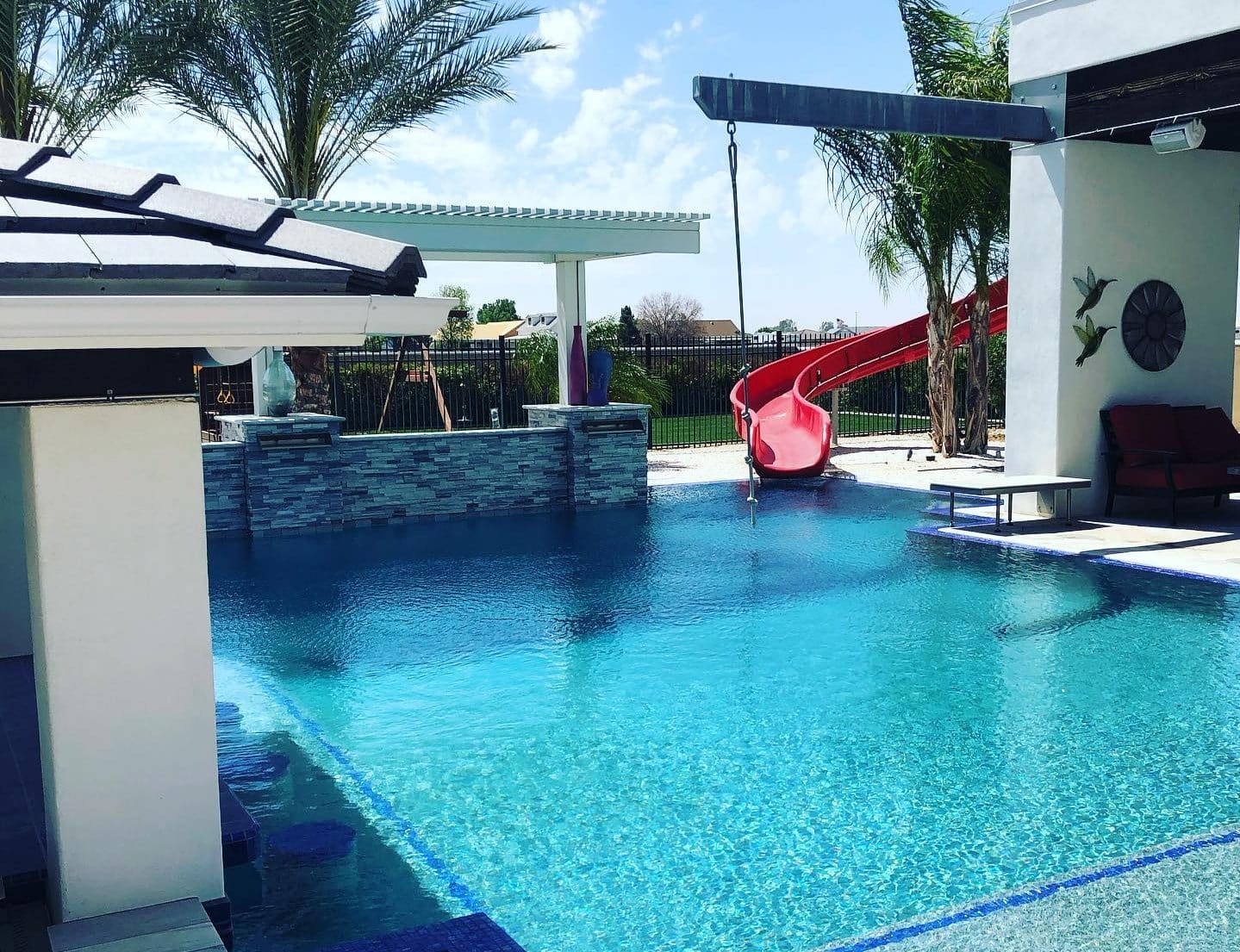Pool maintenance shouldn’t be confusing, and now it doesn’t have to be—our professionals have the answers to all your questions
Pool Repair & Cleaning Frequently Asked Questions
Caring for a pool is a large responsibility, and it’s important to know what’s required of you before installing one. Thankfully, the professionals at Good Life Pool and Spa Care know exactly what it takes to keep a pool in perfect swimming condition. Take a look at some of our most frequently asked questions to get the answers you’ve been searching for.
Don’t see what you’re looking for? We would be happy to discuss any further questions you may have.
We accept five forms of payment—Wave Customer Portal (ACH or CC), Zelle, Venmo, cash, or mailed check.
Our weekly pool cleaning service starts at $145 a month, with potential additional costs for chemicals, repairs, and services. Every six months, we will perform a filter cleaning and algaecide treatment that costs an extra $130. Additionally, we drain each pool every two years, which costs $350.
For our pool repair and equipment upgrade services, our pricing varies on a case-by-case basis. If we are able to fix the problem over the phone, walking you through the process step-by-step, there is no charge. But, for each pool or spa-related problem that requires us to come to your home and inspect, we charge a $85 diagnosis fee that is automatically applied to the repair. When it comes to more extensive repairs, we require 50% down and the other 50% once the work is complete. The repair and upgrade costs will depend on the equipment your pool needs and the damage that has occurred.
A large pool, or dive pool, is any pool that is deeper than 6 ½ feet. In contrast, a play pool is any pool that contains under 15 thousand gallons of water.
Chemicals in your service include one gallon of liquid Chlorine or Muriatic acid.
There is an additional charge for all other chemicals including specialty chemicals.
Draining your pool will depend on a variety of factors—weather, amount of debris seen each year, maintenance and upkeep, and more. We recommend draining your pool every two years due to the extreme weather conditions Arizona is known for having.
Saltwater pools are unique in that they convert ordinary salt into chlorine, so the simple answer is rarely, if ever. Saltwater pools are a great option for those who are sensitive to chlorine for this exact reason. Under certain circumstances, you may need to “shock” your pool with chlorine, but our professionals can make that determination for you and explain the causes for the added chemicals.
“Shocking” a pool refers to the process of adding chlorine and other non-chlorine chemicals into the water to raise the “free-chlorine” levels. By raising the levels, contaminants such as algae, chloramines, and bacteria are not able to grow as quickly, if at all.
The best time to shock a pool is during the evening so the system can run overnight without being disrupted by avid swimmers. If you’ve recently undergone a shock treatment, we recommend avoiding using your pool for 8 to 12 hours for maximum results.
The pH level should be between 7.2 and 7.6 and the total alkaline levels should be between 80-120 ppm. These levels change throughout the year, as the temperature of the water, the calcium level, the phosphate level, the TDS level, etc all play a factor in the ideal level. We follow the LSI to accurately insure your pool water is as healthy as possible.
